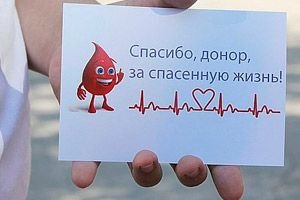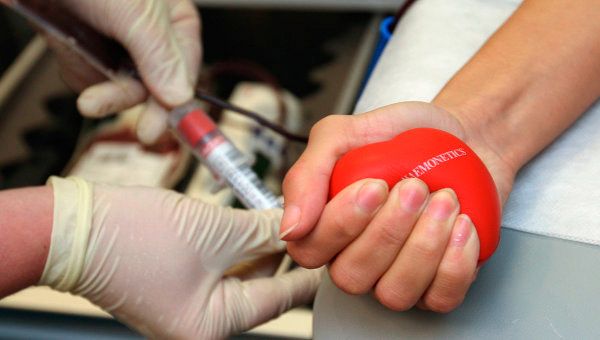
All iLive content is medically reviewed or fact checked to ensure as much factual accuracy as possible.
We have strict sourcing guidelines and only link to reputable media sites, academic research institutions and, whenever possible, medically peer reviewed studies. Note that the numbers in parentheses ([1], [2], etc.) are clickable links to these studies.
If you feel that any of our content is inaccurate, out-of-date, or otherwise questionable, please select it and press Ctrl + Enter.
Donors prolong their lives by giving blood
Last reviewed: 02.07.2025
 ">
">Swedish and Danish scientists have made a remarkable conclusion: people who periodically donate blood can live longer than other people. Moreover, scientists have determined the reason why this happens.
The research began with the idea that experts wanted to prove that blood donation does not pose a health risk to people who donate blood. However, it was discovered that donors do prolong their lives – but only if they donate blood regularly.
The study was conducted with the participation of citizens of the Scandinavian Peninsula. For a long time, scientists watched and assessed their lifestyle and lifestyle. By the end of the experiment, it was discovered that the long-livers of Scandinavia are those citizens who systematically practiced donation. The term "systematically" in this case means that these people have donated more than 2 liters of blood in total throughout their lives.
What is the reason for such a phenomenon as donor longevity?
The whole point is that donating blood activates the functionality of internal organs and systems. This has a positive effect on the influx of "new" blood and tones the entire body.
After a person has donated blood, its renewal accelerates, which immediately affects the strengthening of the immune system and a decrease in the risk of developing all kinds of diseases and pathological conditions.
The positive effect of donation can also be seen in the condition of the skin: people who donate blood periodically have skin that is generally younger and healthier than other people. Thus, donation also rejuvenates the body.
It is important to note another feature: in the body of an elderly donor, the quality and quantity of blood returns to normal in about 20-30 days, while in a young donor this process is completely completed in 10-14 days. If there is an acute deficiency of antibodies in the body, they begin to divide intensively. For these reasons, regular practice of donation is considered very useful.
And a few more arguments in favor of donation:
- Donors are 90% less likely to have sudden cerebrovascular accidents and 30% less likely to have heart attacks.
- Donors suffer from myocardial infarction several dozen times less often.
- “Regular” donors have stronger and denser vascular walls, and the level of free radicals in their blood increases – this can be considered an excellent preventative measure against oncological pathologies.
- By giving "old" blood, the donor forces his body to produce renewed blood elements. As a result, the liver works easier and better.
- Donors have a more positive mindset and feel better physically. This suggests that donation gives a person a boost of energy and vitality.

Previously, it was believed that donating blood is a negative stress for the body, which is accompanied by the loss of iron and other essential substances. However, it turned out that this is not the case: donors get sick less often and live longer.
